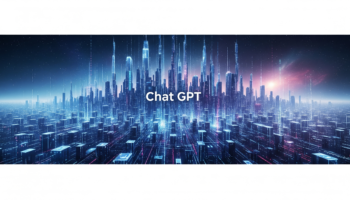Until recently, OpenAI was the dominant force in artificial intelligence (AI) and chatbots, with its GPT-4 large language model (LLM) powering ChatGPT (as well as Microsoft’s Copilot) and taking the globe by storm. The corporation took an early lead, and everyone else has been playing catch-up ever since.
However, OpenAI now faces a new rival in the form of Google Gemini. This newcomer debuted in February 2024 (after being revealed at the end of 2023) and quickly caused a stir in the AI community.
Is it enough to beat GPT-4? What can it do now, and what about in the future? And how do you use Gemini? We dug deep into the world of Gemini to find answers to all of these questions and more. If you’re interested in Google’s latest AI developments, here is the place to be.
WHAT IS THE GOOGLE GEMINI?
Gemini is Google’s most recent large language model (LLM). What is an LLM? It’s the system that powers the AI tools you’ve probably seen and used on the internet. As an example, GPT-4 powers ChatGPT Plus is OpenAI’s sophisticated paid-for chatbot.
Gemini, however, is more than just an AI model; it also serves as the new name and identity for the Bard chatbot. Yes, Bard is no more and has been completely replaced by Gemini. Essentially, Google has simplified things by naming both the underlying technology and the chatbot itself Gemini. Furthermore, there is a free Gemini app for Android, and Gemini can replace Google Assistant on your Android phone if you choose. On iOS, Gemini is present within the Google app.

On top of that, Google has relaunched its Duet AI service for enterprises as Gemini for Workspace, which includes a slew of productivity-related features.
The third twist is that, in addition to the basic (free) version of Gemini for consumers, there is a subscription option for the AI called Gemini Advanced. This paid solution is based on a more powerful LLM known as Gemini Ultra, and users with the Google One AI Premium membership receive additional benefits from using this model.
To summarize, all Google’s AI properties are now under the Gemini umbrella to simplify things, whether it’s AI for consumers or enterprises, and whether you access Gemini via the web, the assistant, or app on your smartphone.
What can GEMINI do?
The short answer to this question is “a lot.” However, you are probably expecting us to go into further detail.
As we’ve just discussed, Gemini is a broad umbrella for a wide range of AI capabilities and functionality given through several channels.
Google noted in a news release when Gemini was originally announced that the AI is a multimodal tool. In other words, it can work with a variety of input and output formats, including text, code, audio, photos, and videos. This offers it a great deal of versatility to accomplish a variety of activities.
However, Google has implemented two distinct LLMs using their AI. The free version is powered by Gemini 1.0 Pro, while the subscription AI (Gemini Advanced) is powered by Gemini 1.0 Ultra. And, yes, it has not gone unnoticed that the simplification of bringing everything under the Gemini brand has its own set of comical complexities and confusion.
All you need to know is that the free version, Gemini Pro, is considerably simpler, less accurate, and lacks the inventiveness and depth of the expensive Gemini Ultra LLM.
So, what can Gemini Pro do? It can answer basic queries, summarize text, and generate images. Gemini also integrates with other Google services, like Gmail, Google Maps, and YouTube. So if you ask it for sightseeing recommendations, it will display them in Google Maps.
There are some useful features, and those with Android devices may receive even more mileage for free with the Gemini app. As previously said, this can replace Google Assistant on an Android smartphone, executing queries and working its AI magic through other Google services. You do not have to replace Assistant with Gemini is also an option, and you can utilize the Gemini app whenever you want the AI to step in and aid.
That decision may cause you to ask if Gemini is a suitable replacement for Google Assistant. We discussed this extensively in our hands-on with Gemini on Android, and there are undoubtedly limitations to the AI. Gemini is noticeably slower than Google Assistant, and the AI still contains problems. For example, it is meant to be able to interact with images, although this capability remains glitchy (at the time of writing).
However, the initial Gemini on Android experience was far less stable than it is today. For example, there were some basic errors with the interface (although a big issue was promptly resolved). Another example comes to mind: Gemini was supposed to deal with smart home gadgets, but failed task when we first tried it, but this functionality has recently improved and now works properly.
It appears like Google is quickly resolving issues with Gemini on mobile, which is encouraging, and the Gemini app can produce excellent results. There are still kinks to iron out in terms of replacing Google Assistant on Android, but that should come with time.

Overall, the free version provides plenty of options, particularly for Android users. However, the commercial version of Gemini is significantly more in-depth.
Gemini Ultra (the model that powers the Gemini Advanced subscription package) brings a slew of sophisticated capabilities to the table, such as answering multi-step queries and assisting with more complicated tasks like coding. On a broader level, it is also more accurate in terms of providing better and more ordered responses to questions.
According to our sources, Gemini will soon be available in Google Docs, Gmail, and other Google productivity tools, but only for Advanced members.
Overall, the free version provides plenty of options, particularly for Android users. However, the commercial version of Gemini is significantly more in-depth.
Gemini Ultra (the model that powers the Gemini Advanced subscription package) brings a slew of sophisticated capabilities to the table, such as answering multi-step queries and assisting with more complicated tasks like coding. On a broader level, it is also more accurate in terms of providing better and more ordered responses to questions.
According to our sources, Gemini will soon be available in Google Docs, Gmail, and other Google productivity tools, but only for Advanced members.
Overall, the free version provides plenty of options, particularly for Android users. However, the commercial version of Gemini is significantly more in-depth.
Gemini Ultra (the model that powers the Gemini Advanced subscription package) brings a slew of sophisticated capabilities to the table, such as answering multi-step queries and assisting with more complicated tasks like coding. On a broader level, it is also more accurate in terms of providing better and more ordered responses to questions.
According to our sources, Gemini will soon be available in Google Docs, Gmail, and other Google productivity tools, but only for Advanced members.
Finally, it’s worth noting that Google is already developing the next-generation Gemini 1.5 model, which will take both LLMs to new heights with the Gemini 1.5 Pro and Gemini 1.5 Ultra.
Gemini 1.5 Pro is now in early testing and can handle longer prompts, giving what Google describes as “dramatically enhanced performance” no less. In a test, Gemini 1.5 went through a 400-page transcript of the Apollo 11 lunar landing and was instructed to find “comedic moments” in the mission. It dutifully cooperated by selecting a few jokes told by the astronauts, which took barely 30 seconds. Impressive.
When was GEMINI released?
Google Gemini was published on February 8, and Google confirmed that it replaced Bard, who was put to pasture. Gemini was immediately available in both its free and premium versions, including Gemini Advanced. Google also began rolling out the Android app in the United States right away.
The US launch was completed in a week, so it moved quickly, but the Gemini Android app has yet to be seen overseas – though we’re informed it will be available in additional countries soon. While iOS distribution lagged behind, Gemini is now accessible on Apple handsets (as part of the Google app, albeit in a more limited version than Android).

Is Google Gemini free?
The regular version of Google Gemini is free, although it has less features than the commercial AI. As previously stated, the free Gemini AI is based on a simpler model, whereas those who pay a subscription for Gemini Advanced benefit from far more features and capabilities.
How much is Gemini Advanced? Google charges $19.99 / £18.99 / AU$32.99 a month, but you can test it for free for a limited period thanks to a two-month trial offer. The membership, however, comes with additional benefits, as Gemini Advanced is part of the Google One AI Premium Plan, which includes 2TB of cloud storage among other perks.
Given that Google One with 2TB of storage already costs $9.99 / ₹838.18 / AU$12.49 per month, Gemini Advanced appears to be a better value offer.

How Do I Use Google GEMINI?
The way you use Google Gemini varies depending on the version you’re interested in and the product it’s integrated with.
You can use the AI on the Gemini website in the same manner you would communicate with an online chatbot (for example, Google Bard).
Alternatively, you can utilize the Gemini app on your Android phone (or replace Google Assistant with Gemini, as previously stated). On iOS, you can get Gemini capabilities through the Google app. Oh, and according to rumors, you may soon be able to use Gemini with your headphones.
Finally, there is an additional and unique option of subscribing to Gemini Advanced, for a full AI experience that includes sharper answers, dealing with difficult tasks and demanding creative needs, as well as the other perks listed above.
GEMINI VS GPT-4: WHAT IS THE DIFFERENCE?

How does Gemini compare to GPT-4 in the fight of huge language models?
For example, when Gemini was originally announced, Google claimed it was more sophisticated than GPT-4. In a blog post, Google published the results of eight text-based benchmarks, with Gemini winning seven of them. According to Google, Gemini won all ten multimodal benchmarks.
That would seem to imply that Gemini is the superior system, but it isn’t quite that simple. GPT-4 was released in March 2023, thus Gemini is essentially catching up with a competitor AI tool that is over a year old. We don’t know how capable OpenAI’s next version of GPT will be, and there are a lot of complexities in this contest beyond Google’s limited benchmarks, making it difficult to conclude which tool is genuinely superior at the present.
Furthermore, Google only tested its more advanced model, Gemini Ultra, against GPT-4, not Gemini Pro. Given the often-thin margins between GPT-4 and Gemini Ultra, it appears that OpenAI’s model outperforms Gemini Pro.






